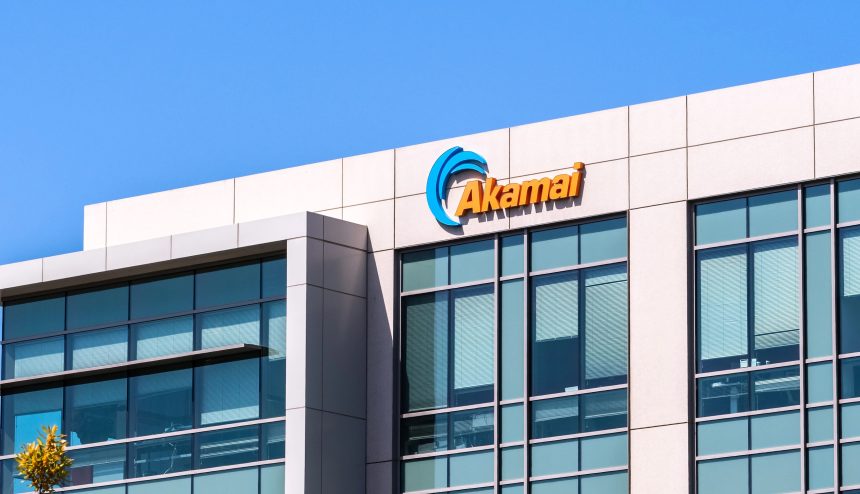L’acquisizione consentirà ad Akamai di estendere la protezione a tutti i punti di traffico API, indipendentemente dai requisiti aziendali, di integrazione o di implementazione
Akamai Technologies, Inc. (NASDAQ: AKAM), l’azienda cloud che abilita e protegge la vita online, ha annunciato di aver stipulato un accordo definitivo per l’acquisizione di Noname Security, società che si occupa di sicurezza delle API. Noname, uno dei principali fornitori di sicurezza API sul mercato, potenzierà l’attuale soluzione di sicurezza API di Akamai e accelererà la sua capacità di soddisfare la crescente domanda dei clienti e le esigenze del mercato, in seguito al sempre crescente utilizzo delle API. Akamai prevede inoltre di ottenere una maggiore scalabilità grazie alle risorse di vendita e marketing aggiuntive di Noname e alle relazioni consolidate.
“Le APP sono alla base del nostro mondo, ma la proliferazione delle applicazioni e degli utenti che le utilizzano aumentano anche i rischi per la sicurezza”, ha dichiarato Mani Sundaram, Executive Vice President and General Manager, Security Technology Group, Akamai Technologies. “I nostri dati mostrano un aumento del 109% degli attacchi alle API rispetto all’anno precedente, per questo è necessario proteggere maggiormente le API. Con Noname, Akamai può disporre di un’ampia gamma di integrazioni e scelte di implementazione necessarie per offrire ai clienti una protezione API completa in tutti gli ambienti”.
Akamai prevede di offrire una suite completa per la sicurezza delle API che consenta ai clienti di scoprire meglio le API “shadow” e di rilevare vulnerabilità e attacchi. L’offerta migliorata di Akamai prevede una maggiore scelta di implementazione per i clienti e l’accesso a un portfolio di integrazioni tecnologiche che non ha rivali sul mercato. Akamai prevede inoltre di integrare Noname nella sua piattaforma di applicazioni e API, per l’utilizzo da parte dei clienti, subito dopo la chiusura dell’acquisizione.
“Lo sviluppo di API continua a proliferare, mentre i clienti danno priorità ai loro investimenti nella modernizzazione delle applicazioni e nelle iniziative di trasformazione digitale”, ha dichiarato Oz Golan, Chief Executive Officer and co-founder, Noname. “L’unione di Noname con l’offerta di sicurezza API di Akamai fornirà una soluzione per qualsiasi tipo di cliente. Indipendentemente dal luogo in cui risiedono le applicazioni, che siano nel cloud, nativamente sull’Edge, on-premise o su piattaforme di altri fornitori, esse saranno protette”.
“Si tratta di un passo molto importante nel settore della cybersecurity perché la sicurezza delle API è spesso sottovalutata” aggiunge Alessandro Livrea, Country Manager Akamai Italia. “Per capire quanto sia rilevante basta pensare che il 47% degli attacchi applicativi in Europa sono diretti alle API, quindi quasi la metà di tutti gli attacchi prende di mira questo ambito”.
Secondo i termini dell’accordo, Akamai ha accettato di acquisire tutte le azioni di Noname per circa 450 milioni di dollari, dopo i consueti aggiustamenti del prezzo di acquisto. La chiusura della transazione, soggetta alle abituali condizioni di chiusura, è prevista per il secondo trimestre del 2024.
Per l’anno fiscale 2024, si prevede che l’acquisizione fornirà circa 20 milioni di dollari di ricavi, avrà una diluizione del margine operativo non-GAAP di circa 0,50% e una diluizione dell’utile netto non-GAAP per azione diluita di circa 0,10 dollari. Nel corso della prossima conferenza stampa sugli utili trimestrali, prevista per oggi, 9 maggio 2024, Akamai fornirà i risultati finanziari del primo trimestre e le previsioni finanziare per il secondo trimestre e l’intero anno 2024, compreso l’impatto previsto di Noname.
Noname, con sede a San Josè, California, è un’azienda finanziata privatamente. Gli oltre 200 dipendenti di Noname, tra cui l’amministratore delegato e cofondatore Oz Golan, entreranno a far parte del Security Technology Group di Akamai.
Per ulteriori informazioni, è possibile visitare la pagina sulla sicurezza delle applicazioni e delle API di Akamai.
Informazioni su Akamai
Akamai è l’azienda di servizi cloud che abilita e protegge la vita online. Le principali aziende al mondo scelgono Akamai per creare, distribuire e proteggere le loro experience digitali, aiutando miliardi di persone a vivere, lavorare e giocare ogni giorno. Akamai Connected Cloud, una piattaforma edge e cloud ampiamente distribuita, avvicina le app e le experience agli utenti e allontana le minacce. Per ulteriori informazioni sulle soluzioni di cloud computing, sicurezza e delivery di contenuti di Akamai, visitate il sito akamai.com/it o akamai.com/it/blog e seguite Akamai Technologies su Twitter e LinkedIn
Contatti: Ufficio stampa Akamai – Noesis Comunicazione – akamai@noesis.net – Tel. 02 8310511
Akamai Statement Under the Private Securities Litigation Reform Act
This release contains statements that are not statements of historical fact and constitute forward-looking statements for purposes of the safe harbor provisions under The Private Securities Litigation Reform Act of 1995, including, but not limited to, statements about expected future financial performance, expectations, plans and prospects of Akamai. Actual results may differ materially from those indicated by these forward-looking statements as a result of various important factors including, but not limited to, inability to continue to generate cash at the same level as prior years; failure of our investments in innovation to generate solutions that are accepted in the market; inability to increase our revenue at the same rate as in the past and keep our expenses from increasing at a greater rate than our revenues; effects of competition, including pricing pressure and changing business models; impact of macroeconomic trends, including economic uncertainty, turmoil in the financial services industry, the effects of inflation, rising and fluctuating interest rates, foreign currency exchange rate fluctuations, securities market volatility and monetary supply fluctuations; conditions and uncertainties in the geopolitical environment, including sanctions and disruptions resulting from the ongoing war in Ukraine; continuing supply chain and logistics costs, constraints, changes or disruptions; defects or disruptions in our products or IT systems, including cyber-attacks, data breaches or malware; failure to realize the expected benefits of any of our acquisitions or reorganizations; changes to economic, political and regulatory conditions in the United States and internationally; our ability to attract and retain key personnel; impact of the COVID-19 pandemic; delay in developing or failure to develop new service offerings or functionalities, and if developed, lack of market acceptance of such service offerings and functionalities or failure of such solutions to operate as expected, and other factors that are discussed in our Annual Report on Form 10-K, quarterly reports on Form 10-Q, and other documents filed with the SEC.
Use of Non-GAAP Financial Measures
In addition to providing financial measurements based on generally accepted accounting principles in the United States of America (GAAP), Akamai provides additional financial metrics that are not prepared in accordance with GAAP (non-GAAP financial measures). Management uses non-GAAP financial measures, in addition to GAAP financial measures, to understand and compare operating results across accounting periods, for financial and operational decision making, for planning and forecasting purposes, to measure executive compensation and to evaluate Akamai’s financial performance. The non-GAAP financial measures used in this release are non-GAAP operating margin and non-GAAP net income per diluted share.
Management believes that these non-GAAP financial measures reflect Akamai’s ongoing business in a manner that allows for meaningful comparisons and analysis of trends in the business, as they facilitate comparison of financial results across accounting periods and to those of our peer companies. Management also believes that these non-GAAP financial measures enable investors to evaluate Akamai’s operating results and future prospects in the same manner as management. These non-GAAP financial measures may exclude expenses and gains that may be unusual in nature, infrequent or not reflective of Akamai’s ongoing operating results.
The non-GAAP financial measures do not replace the presentation of Akamai’s GAAP financial results and should only be used as a supplement to, not as a substitute for, Akamai’s financial results presented in accordance with GAAP. Akamai has provided a reconciliation of each non-GAAP financial measure used in its financial reporting and investor presentations to the most directly comparable GAAP financial measure. This reconciliation captioned “Reconciliation of GAAP to Non-GAAP Financial Measures” can be found on the Investor Relations section of Akamai’s website.
Akamai provides forward-looking statements in the form of guidance during its quarterly earnings conference calls. This guidance is provided on a non-GAAP basis and cannot be reconciled to the closest GAAP measures without unreasonable effort because of the unpredictability of the amounts and timing of events affecting the items we exclude from non-GAAP measures. For example, stock-based compensation is unpredictable for Akamai’s performance-based awards, which can fluctuate significantly based on current expectations of the future achievement of performance-based targets. Amortization of intangible assets, acquisition-related costs and restructuring costs are all impacted by the timing and size of potential future actions, which are difficult to predict. In addition, from time to time, Akamai excludes certain items that occur infrequently, which are also inherently difficult to predict and estimate. It is also difficult to predict the tax effect of the items we exclude and to estimate certain discrete tax items, such as the resolution of tax audits or changes to tax laws. As such, the costs that are being excluded from non-GAAP guidance are difficult to predict and a reconciliation or a range of results could lead to disclosure that would be imprecise or potentially misleading. Material changes to any one of the exclusions could have a significant effect on our guidance and future GAAP results.
Akamai’s definition of the non-GAAP measures used in this press release are outlined below:
Non-GAAP operating margin – Non-GAAP income from operations stated as a percentage of revenue. Non-GAAP income from operations is GAAP income from operations adjusted for the following items: amortization of acquired intangible assets; stock-based compensation; amortization of capitalized stock-based compensation; amortization of capitalized interest expense; acquisition-related costs; restructuring charges; and other non-recurring or unusual items that may arise from time to time.
Non-GAAP net income per diluted share – Non-GAAP net income divided by weighted average diluted common shares outstanding. Diluted weighted average common shares outstanding are adjusted in non-GAAP per share calculations for the shares that would be delivered to Akamai pursuant to the note hedge transactions entered into in connection with the issuances of $1,265 million of convertible senior notes due 2029 and the issuances of $1,150 million of convertible senior notes due 2027 and 2025, respectively. Under GAAP, shares delivered under hedge transactions are not considered offsetting shares in the fully-diluted share calculation until they are delivered. However, Akamai would receive a benefit from the note hedge transactions and would not allow the dilution to occur, so management believes that adjusting for this benefit provides a meaningful view of operating performance. With respect to the convertible senior notes due in each of 2029, 2027 and 2025, unless Akamai’s weighted average stock price is greater than $126.31, $116.18 and $95.10, respectively, the initial conversion prices, there will be no difference between GAAP and non-GAAP diluted weighted average common shares outstanding.
Non-GAAP net income – GAAP net income adjusted for the following tax-affected items: amortization of acquired intangible assets; stock-based compensation; amortization of capitalized stock-based compensation; acquisition-related costs; restructuring charges; amortization of debt issuance costs; amortization of capitalized interest expense; certain gains and losses on investments; gains and losses from equity method investment; and other non-recurring or unusual items that may arise from time to time.
The non-GAAP adjustments, and Akamai’s basis for excluding them from non-GAAP financial measures, are outlined below:
Amortization of acquired intangible assets – Akamai has incurred amortization of intangible assets, included in its GAAP financial statements, related to various acquisitions Akamai has made. The amount of an acquisition’s purchase price allocated to intangible assets and term of its related amortization can vary significantly and is unique to each acquisition; therefore, Akamai excludes amortization of acquired intangible assets from its non-GAAP financial measures to provide investors with a consistent basis for comparing pre- and post-acquisition operating results.
Stock-based compensation and amortization of capitalized stock-based compensation – Although stock-based compensation is an important aspect of the compensation paid to Akamai’s employees, the grant date fair value varies based on the stock price at the time of grant, varying valuation methodologies, subjective assumptions and the variety of award types. This makes the comparison of Akamai’s current financial results to previous and future periods difficult to interpret; therefore, Akamai believes it is useful to exclude stock-based compensation and amortization of capitalized stock-based compensation from its non-GAAP financial measures in order to highlight the performance of Akamai’s core business and to be consistent with the way many investors evaluate its performance and compare its operating results to peer companies.
Acquisition-related costs – Acquisition-related costs include transaction fees, advisory fees, due diligence costs and other direct costs associated with strategic activities, as well as certain additional compensation costs payable to employees acquired from the Linode acquisition if employed for a certain period of time. The additional compensation cost was initiated by and determined by the seller, and is in addition to normal levels of compensation, including retention programs, offered by Akamai. Acquisition-related costs are impacted by the timing and size of the acquisitions, and Akamai excludes acquisition-related costs from its non-GAAP financial measures to provide a useful comparison of operating results to prior periods and to peer companies because such amounts vary significantly based on the magnitude of the acquisition transactions and do not reflect Akamai’s core operations.
Restructuring charge – Akamai has incurred restructuring charges from programs that have significantly changed either the scope of the business undertaken by the Company or the manner in which that business is conducted. These charges include severance and related expenses for workforce reductions, impairments of long-lived assets that will no longer be used in operations (including right-of-use assets, other facility-related property and equipment and internal-use software) and termination fees for any contracts canceled as part of these programs. Akamai excludes these items from its non-GAAP financial measures when evaluating its continuing business performance as such items vary significantly based on the magnitude of the restructuring action and do not reflect expected future operating expenses. In addition, these charges do not necessarily provide meaningful insight into the fundamentals of current or past operations of its business.
Amortization of debt issuance costs and capitalized interest expense – Akamai has convertible senior notes outstanding that mature in 2029, 2027 and 2025. The issuance costs of the convertible senior notes are amortized to interest expense and are excluded from Akamai’s non-GAAP results because management believes the non-cash amortization expense is not representative of ongoing operating performance.
Gains and losses on investments – Akamai has recorded gains and losses from the disposition, changes to fair value and impairment of certain investments. Akamai believes excluding these amounts from its non-GAAP financial measures is useful to investors as the types of events giving rise to these gains and losses are not representative of Akamai’s core business operations and ongoing operating performance.
Gains and losses from equity method investment – Akamai records income or losses on its share of earnings and losses from its equity method investment, and any gains from returns of investments or impairments. Akamai excludes such income and losses because it does not have direct control over the operations of the investment and the related income and losses are not representative of its core business operations.
Income tax effect of non-GAAP adjustments and certain discrete tax items – The non-GAAP adjustments described above are reported on a pre-tax basis. The income tax effect of non-GAAP adjustments is the difference between GAAP and non-GAAP income tax expense. Non-GAAP income tax expense is computed on non-GAAP pre-tax income (GAAP pre-tax income adjusted for non-GAAP adjustments) and excludes certain discrete tax items (such as the impact of intercompany sales of intellectual property related to acquisitions), if any. Akamai believes that applying the non-GAAP adjustments and their related income tax effect allows Akamai to highlight income attributable to its core operations.
















